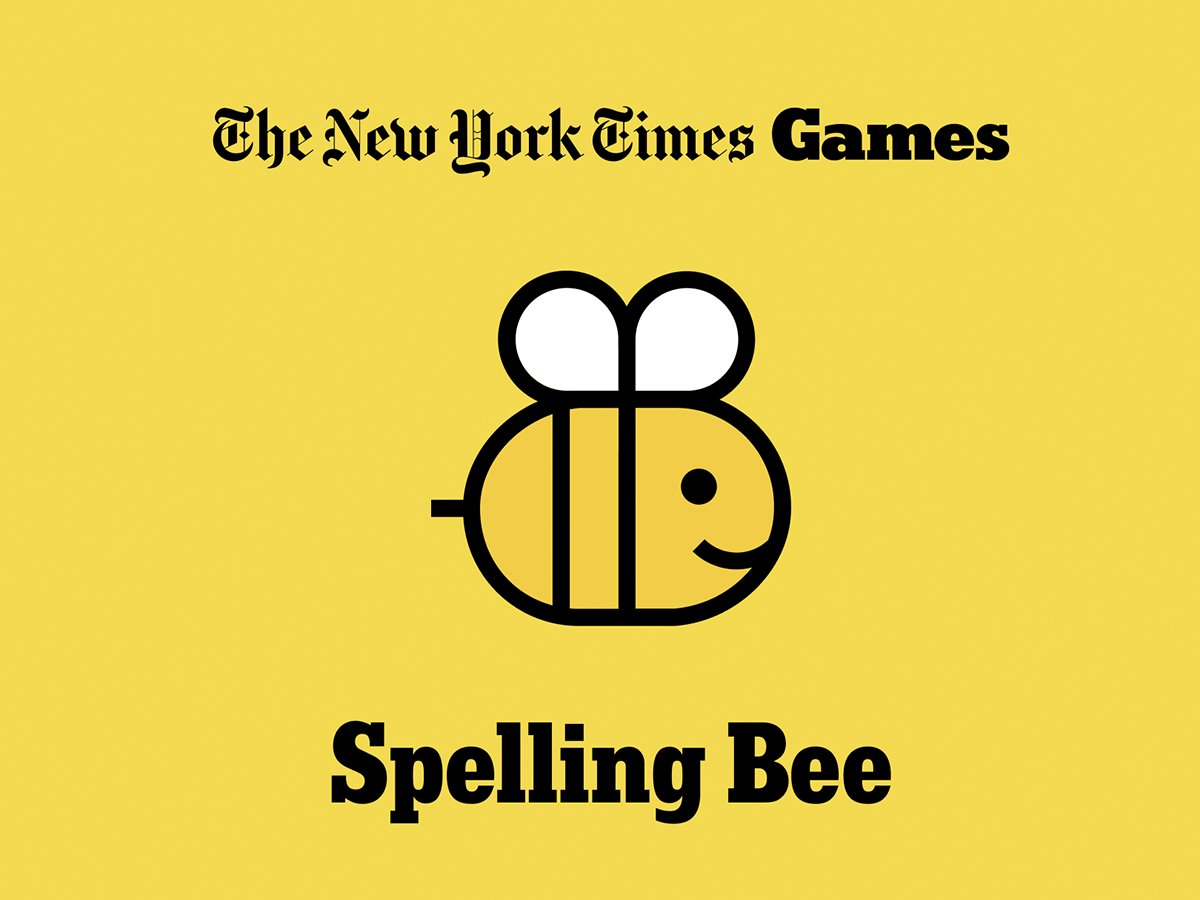The New York Times is a venerable player in the world of newspaper word games, its daily crossword puzzle long considered the gold standard. But the Times’ recent acquisition of Wordle at a rumored seven-figure price caused controversy and concern among the popular word-guessing game’s millions of fans; some accused the paper of making Wordle harder, despite evidence to the contrary, and others worried that the game might slide behind a paywall.
This fear is likely unfounded, as the Times has a history of publishing its puzzles online free for nonsubscribers. One of the most popular of these is the anagram guessing game “New York Times Spelling Bee.” In this twist on the classic word jumble, the player is challenged to find dozens of words using only six letters, which are arranged in a honeycomb pattern around a seventh, all overseen by a smiling cartoon bee. Words must be at least four letters long, and must include the letter in the middle.
The daily game also includes a “Hints” page, where the row of provided letters appear in a grid denoting the number of words of each length there are to be found. This is intended to provide the player with a scorecard, letting them know if they can stop looking for four- or five-letter words.
Each correct guess added to the player’s ongoing tally is rewarded with points, and a compliment of “Nice!” or “Awesome!” from the Spelling Bee himself. As they guess more words, the player progresses through the “Beginner” level and onward through “Solid,” “Good,” then “Amazing.” One who can guess all of the words in the day’s puzzle can ascend to the rarefied rank of “Genius,” or “Queen Bee.”
Spelling Bee debuted in 2014, with a print-only version in the weekly The New York Times Magazine. It was created by Frank Longo, a longtime puzzle designer with more than 90 books to his name, and who earned notoriety among crossword enthusiasts for his 2016 “Super Mega Puzzle,” a 728-clue behemoth whose 50-by-50 square grid took up a full two-page print spread. The NYT Crossword is edited currently by Sam Ezersky, whose job includes constructing each day’s puzzle, compiling the list of correct answers, and ensuring it’s ready to post by 3 a.m. EST.
While Spelling Bee may not boast the media profile of its famous younger sibling, Wordle, its online following isn’t any less passionate; the open chat forum that runs alongside the puzzle on theTimes site can become a hive of controversy, as players give each other clues and argue amongst each other about the unfairness of posting “spoilers,” as well as the futility of asking strangers on the Internet not to post spoilers. Befitting the readership of a paper nicknamed “The Grey Lady,” these arguments are often more genteel — and far more accurately-spelled — than similar quarrels on open bulletin boards like Reddit.
Recent posts include one from “FKCam” in Pasadena, who wrote: “This is a space of genuine community for many. Please, bees, don’t ask hivemates to stay away from the Comments section if they don’t want to see spoilers, let’s just follow the NYT rule and not post them.”
To which “Janine” in Flagstaff responded, “I began doing the spelling 🐝 to recover from a concussion and rebuild my vocabulary. It is impolite to draw attention to a mistake when someone accidentally posts a spoiler. Self-appointed beekeepers who watch all day to point out the mistakes of others, kindly remember that the bee is a game.”
Other forum users will post their own crossword-style word clues; “(4) Super eager,” for example, indicates that the word is 4 letters long, and a synonym for “eager.” Still others use the forum as a platform to complain about the paper’s seemingly-random inclusion or exclusion of certain words. As Jonathan in NYC complained, “If attagirl is a word so is galpal,” while “Thinker,” who professedly hails from Everywhere, grumbles, “PEGLEG –Although the NYT prints this WORD as 2 words, many write it as one= A pegleg is a prosthesis, or artificial limb, fitted to the remaining stump of a human leg.”
And so it goes, in Spelling Bee discourse; sweetening the days for online word-nerds, though with a fraction of Wordle’s buzz.
